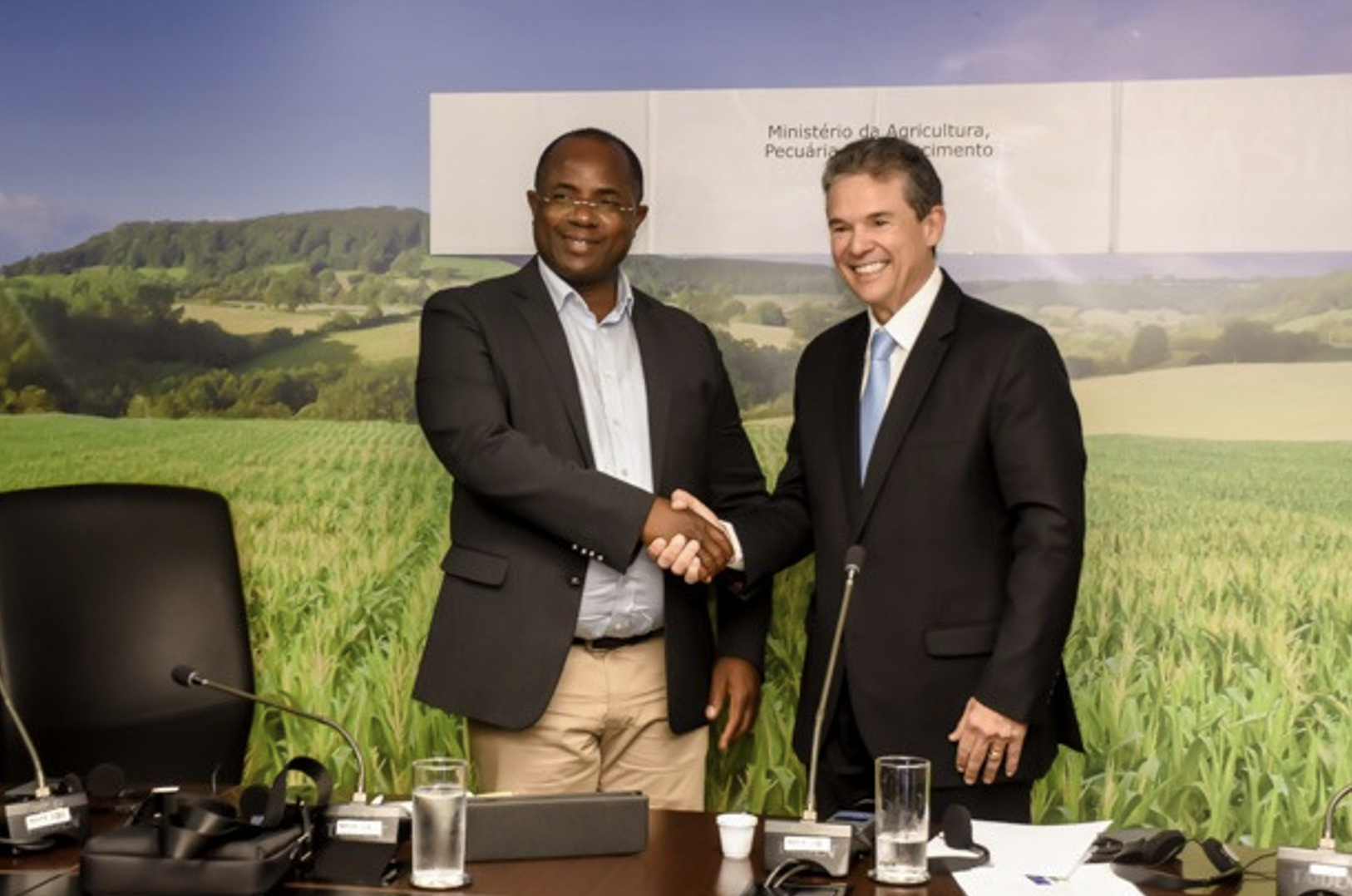Delegation of the Government of Uganda visits Brazil’s tilapia producers, industry and regulators
Brasil February, 2023
Knowledge exchange.
The visit was organised by ThinkAqua and FAI Farms and Supported by Gatsby Africa. The main goal was to facilitate knowledge exchange between high-level officials within the Ministry of Agriculture, Animal Industry and Fisheries (MAAIF) of Uganda and the regulators, industry experts and private sector of the tilapia aquaculture industry in Brazil.
The main objective was to illustrate the potential (economic) impacts of a larger-scale aquaculture sector in Brazil. This was done by showcasing the scale of feed manufacturing required to support a large industry, with a particular focus on ingredient supply chains and a demonstration of how environmental risk and impact are effectively managed by industry and regulators.
With a focus on how biosecurity, health and welfare are managed, both on-farm and at scale, the visit explored the requirements to grow such an industry, including knowledge and skills development, information sources, technology and innovation demonstration that could be applicable in Uganda’s aquaculture sector development plans.
Visit at Raguife Feed Mill in Santa Fé do Sul, Brazil.
Raguife, part of Grupo Ambar-Amaral, is the largest independent feed producer serving the aquaculture sector in Brazil, represented by Felipe Amaral, one of the company owners. We were shown the full operation of the factory and discussed the ingredient supply chains required to produce this volume of feed. The group also farm and market tilapia through the brand Brazilian Fish. The delegation visited one of their production farms as well.
Meeting Global Peixe in Santa Fé do Sul, Brazil.
Global Peixe is a major tilapia hatchery/nursery run by Emerson Esteves, a recognised pioneer in the industry. Global Peixe produce 100 million fingerlings per year and 40 million vaccinated juveniles and is one of the 10 largest Tilapia hatcheries in the world. They have recently constructed a series of ponds and a new automated vaccination station to give them greater control to do this on-land.
Meeting Grupo BTJ and PeixeBR in Ilha Solteira, Brazil.
Grupo BTJ is an increasingly important player in the industry with farming and processing facilities. We were welcomed by brothers Henrique Junqueira (farming) and Felipe Junqueira (processing). BTJ slaughter their own fish from their three production sites, but also buy from other farms when required to meet customer demand. They sell about 50% whole fish and 50% fillets, with most of the latter sold fresh on ice to customers in Sao Paulo city and some sold frozen to more distant areas of Brazil. Felipe Junqueira is also Vice President of PeixeBR, the Brazilian Fish Producers Association, with membership across the industry (e.g. feed, seed, production, processing and service provision). Most commercial operators in Brazil are PeixeBR members. The organisation collects statistics and publishes an annual report on industry performance. PeixeBR, BTJ Group and Global Peixe are all partners of FAI in our Tilapia Welfare project.
Governmental meeting in Brasília.
The Ministry of Fisheries and Aquaculture is newly re-created agency of the Federal Government of Brazil. It was separated from Agriculture in 2009, but disbanded in 2015 with a change of government, and reinstated in 2023. The delegation from Uganda with Hon. Min. Fred Bwino Kyakulaga met with a significant number of senior staff and were welcomed by Minister Andre de Paula. Water use regulation, environment, fish health and welfare are part of the development program being implemented by the new Brazilian governmental structure.
Lessions learnt.
Development of the commercial tilapia sector has been led by companies, typically with existing experience in commercial agriculture and livestock production. Clear licencing, spatial planning, carrying capacity calculations, and site identification carried out by the government (state and federal level) provided a clear framework to give investors confidence.
To grow a commercial aquaculture sector you need a consistent supply of quality feed, good health, careful environment monitoring, and fish that can cope with the environment and express their natural behaviour. These are fundamentals concepts of the animal welfare.
In Brazil, the sector and its service industries employ 3.5 million people. Commercial tilapia aquaculture is helping drive economic development and provides high-quality, low-carbon food through maximising the use of circular economy practices.
There are expectations that these high-level visits open opportunities for joint developments both in private and public sectors between Brazil and Uganda.





